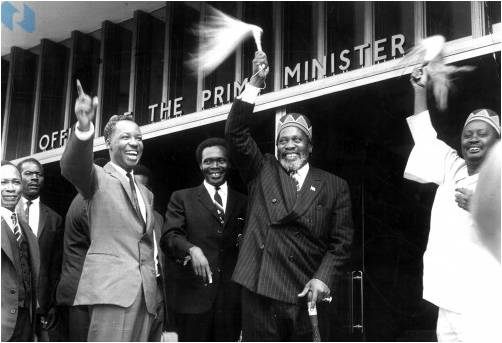Why the East African Federation failed
Several factors explain why the attempt to form a closer union of African territories failed; which were both internal and external.
First and for most, the political status of the three territories was not similar. Kenya was a colony, Uganda a British protectorate and Tanganyika was a British Mandate under the League of Nations.

Secondly in 1924 the idea of a federation was opposed by Uganda and Tanganyika governments they feared an increase of settlers in their countries. Africans rejected the idea fearing domination from the settlers.
Thirdly Africans generally disliked it because it was to benefit only colonialists Tanganyika governments, Britain and the settlers.
Fourthly still in Uganda in 1953 the Buganda government resisted strongly against the idea of the federation culminating in the Kabaka crisis of 1953.
Fifthly in Tanganyika the attitude of Sir Donald Cameroon towards the proposed closer union led it to fail. He was one of the most outspoken critics of the federation and yet he was a governor. He was annoyed by the governors of Kenya and Uganda's move to stop the building of a rail link between Tabora and Mwanza. Cameroon even threatened to resign this forced the British to drop the idea.
Furthermore in Kenya, the African leaders feared that it would interfere with their demands for representation on the legislative council. They had already been threatened by white domination of the affairs.
Some Africans saw the attempt to a closer union as a stumbling block to their social and political institution. The death of Lord Delamare in 1931 deprived the Kenyan settlers of their influential spokesman. This vacuum was difficult to till and weakened the settlers' bargaining spirit.
Another factor is that the economic depression of 1931 led to a desperate economic situation in the three East African territories therefore the question of a closer union was allowed to drop as each territory devised independent means of improving her economy.
The successive commissions that were set up had failed to strongly recommend the idea of a closer union, for example that of Hilton Young proposed the establishment of a High Commissioner for East African territories but was not supported by the settlers.
The idea for the establishment of a closer union for the three East African territories originated from outside and not from within. Hence, it lacked strong popular support among the local population.
There was a change of government in Britain for example with the departure of Lord Armey from the colonial office the East African affair of federation was not enthusiastically followed up.
There was general opposition from Britain and France about formation of the federation. There was a feeling that Germany might regain control of Tanganyika. Hence, the public opinion did not favour the formation.
When the governors of Uganda and Kenya refused to build the railway to link Tabora and Mwanza, the governor of Tanganyika rejected the closer union idea.
Donald Cameroon the governor of Tanganyika was generally opposed to the idea of the union.
There was general fear that Germany might regain her control of Tanganyika.
The departure of the Lord Amery from the colonial office left the idea of the union without any follow up.
The nearness of the World War I! disrupted the union idea since everybody was worried of World War Two.
Tanganyika was merely a British mandated territory under the League of Nations, It 'could be with drawn any time:
In Kenya, Asians and African traders opposed it because it would undermine their commercial rights.
There were already leadership conflicts about who would be the federation leader/chairman.
Thus a major reason for the failure to federate is the developmental socialism which had made Tanzania increasingly impatient of economic factors over which she had inadequate jurisdiction. And so this was a case of socialism militating against pan-Africanism at the level of union in East Africa.
Another reason for the failure to federate at the time of independence (1960-4) was the varying party structure. At the time Tanganyika was a one-party state de jure while Uganda and Kenya had fluid party systems with no laws against the existence of opposition parties. The problems of harmonizing party organizations and policies were considerable. The multi-party states had an additional problem. If there is more than one party in a country, and the ruling party wants to federate with another country, the opposition party could play on local micro-nationalism and arouse hostility towards the governing party for proposing 'a loss of the country's identity'. It can thus be argued that Obote had to be much more circumspect and cautious about the issue of East African Federation than either Nyerere or Kenyatta. At least until the middle of 1964 Obote had to be careful lest the opposition parties in Uganda succeeded in arousing local Uganda loyalties to pose a serious challenge to Obote's more pan-African inclinations. It was not simply a matter of personal jealousies between national leaders. The former Africa correspondent of The Times newspaper of London, W.P. Kirkman, wrote:
any arrangement which put Mr Kenyatta at the top (a position he would certainly get through age and prestige) and Mr Nyerere in second place (which he would have earned because he was the inspirer of the East African Federation) would leave Mr Obote of Uganda out in the cold.2
But Obote had to consider more than just his personal position. His overriding problem was that of taking the majority of his countrymen with him into federation, a task he did not feel he could accomplish at the time.
National Movements and New States in Africa




